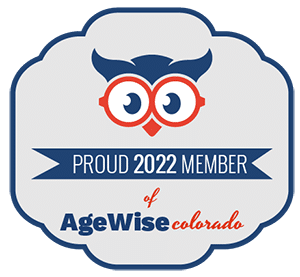Heirs Responsibility for a reverse mortgage – Information that you should know.
Contents

Find out all the details about reverse mortgage heirs responsibility. Most, but not all, reverse mortgages today are federally insured through the Federal Housing Administration’s.
Home Equity Conversion Mortgage (HECM) Program. This advertisement talks about HECM loans only.
If your parents are senior citizens, and they’re considering a reverse mortgage, you may also have some questions.
Here are the answers to the most common questions raised by adult children of senior citizens.
QUESTIONS TO PONDER/Reverse Mortgage Heirs Responsibility
1. Do I have the financial resources to help my parents with their medical and living expenses?
2. Is there a concern from other siblings as to inheriting the home or the equity?
3. What are my parents’ wishes as to staying home if medical care is needed for an extended time?
COMMON CONCERNS
Will Mom and Dad use up my inheritance?
While tapping into their equity, your parents’ home may appreciate in value, which could allow for some equity to be left at the end of the loan. They are also able to live more comfortably without having to depend upon family members to support them.
Will the bank take their home?
No, the bank will not take their home as long as they continue to meet the loan guidelines. However, they must keep their property taxes current, keep required homeowner’s insurance in force and the home in good repair. Failure to do these things could result in the loan being called due and payable which may result in foreclosure or sale of the home to repay the debt. Throughout the life of the reverse mortgage loan, your parents will continue to own their home and retain title.
How much money will they owe when the loan has to be repaid?
Your parents will owe the total amount borrowed, accrued mortgage insurance premiums, accumulated interest, servicing fees, and any other costs and fees financed through the loan amount. Due to the non recourse provision of the loan, the recovery amount is limited to the value of the property.
How do my parents repay the loan?
There are three viable options for your parents. They can sell their home to repay the lender and collect the any leftover proceeds, choose to reimburse the lender directly from a personal account, or refinance the loan.
What happens to the equity if my parents or I decide to repay the loan by selling the house?
There are two options. Either your parents or the heirs can keep the home and pay the balance due on the reverse mortgage, or they can decide to sell the home and use the proceeds to pay off the reverse mortgage. Either way, any remaining equity is retained by the owners or heirs.
What happens to my mom and dad’s house if they move into a senior care facility?
A reverse mortgage loan becomes due and payable when the last surviving borrower moves out of his or her home permanently. A non-borrowing spouse (i.e., one who is younger than 62) can continue to live in the home if his or her spouse is deceased, but no further payouts will likely be made. However, if a borrower has a non-borrowing spouse (or any other co-residents such as children or roommates) and he/she moves to a senior facility for 12 months or more, the loan comes due and payable. For more information, please see http://www.consumerfinance.gov/askcfpb/243/what-happens-if-i-have-to-move-out-of-my-home-into-a-nursing-home-or-assisted-living-and-i-have-a-reverse-mortgage.html
What happens if the loan balance becomes greater than the value of the home?
The Home Equity Conversion Mortgage (HECM) is a non-recourse loan, which means that the loan is only secured by the home and the property. As HECM borrowers, your parents pay a mortgage insurance premium to the U.S. Department of Housing and Urban Development (HUD). This insurance protects the borrower in that they will not be responsible for more than the value of their home when the loan becomes due and payable. Heirs wishing to retain the home after the loan becomes due must pay the entire loan balance and in some cases the loan balance may be greater than the value of your parent’s home. If your parent(s)’ heirs want to purchase the home they can by paying 95% of the appraised value or paying off the balance on the loan, whichever is less. Your parent(s)’ heirs are still entitled to the remaining equity balance, if any, after the loan has been paid off.
What are the risks my parents would be taking in receiving a reverse mortgage?
Typical risks include a prolonged absence of the borrower (more than 12 months) in a care facility which would trigger making the loan due and payable. Also, there is the risk your parents could use most or all of the equity in the home due to the growing loan balance. When it comes to benefits a reverse mortgage typically doesn’t affect regular Social Security or Medicare payments or eligibility. However, it can impact certain government benefits such as SSI and Medicaid. To find out if it impacts other federal or state assistance or medical programs, contact your reverse mortgage lender, tax attorney, or counseling agency. A reverse mortgage loan is secured by a mortgage on the home and failure to comply with loan terms could result in foreclosure. All risks should be identified and discussed with your own attorney, tax and/or financial advisor.
Are there restrictions on how my parents spend their money?
If your parents have a current mortgage on their primary residence, that must be refinanced into the reverse mortgage loan. However, no mortgage payment is required with a reverse mortgage although property taxes, homeowners insurance and maintenance must be paid. After that, your parents can spend their money any way they choose. Borrowers have also used a reverse mortgage to pay off other debts, home improvements, vacations or replace an aging vehicle.. The money can be used for anything they desire.
Is there any information that provides what all of the fees will be?
The lender is required to provide your parents with the Total Annual Loan Cost, or “TALC” disclosure, which is required by the Consumer Financial Protection Bureau (CFPB). The TALC displays the total transaction costs over the projected life of the loan, which will allow your parents to see all costs related to the reverse mortgage.
Want to learn more are Reverse Mortgages? Visit our resources page.









